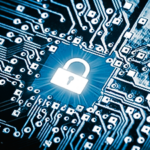
The 23andMe Hack: Understanding the Breach and Protecting Your Data
In early October 2023, the genetic testing giant 23andMe experienced a significant data breach. Dubbed the “23andMe Hack,” this incident raised critical questions about digital security and personal data protection. This article delves into what happened, the implications of the breach, and essential steps to enhance your cybersecurity.
What Happened in the 23andMe Hack?
The 23andMe Hack was a classic example of credential stuffing. Cybercriminals used compromised usernames and passwords from other breaches to access about 14,000 23andMe user accounts. This allowed unauthorized access to millions of DNA Relatives profiles, exposing a wealth of personal information.
How Do Hackers Steal Passwords?
We can’t say where, when, or how each individual user’s password was initially compromised as it could have been any number of ways. However, we can tell you that cyber criminals steal passwords in a variety of ways, including:
- Phishing. This involves tricking individuals into providing their passwords through fake websites or emails that appear legitimate. Think fake Amazon delivery messages.
- Keylogging. Hackers use keylogging software to record keystrokes, capturing passwords as they are typed.
- Brute Force Attacks. This method involves systematically guessing passwords using automated software. A simple weak password can be cracked almost instantly.
- Social Engineering. Manipulating people into revealing their passwords, often through direct contact or deceptive practices. This usually involves the bad actor impersonating someone you know.
- Network Interception. Intercepting network traffic to capture unencrypted passwords on public Wi-Fi networks, like those at coffee shops or airports.
- Exploiting Security Vulnerabilities. Taking advantage of security flaws in software to gain unauthorized access.
- Trojan Horses. Malicious software disguised as legitimate that can capture passwords.
- Dumpster Diving. Physically searching through garbage for written down or discarded passwords. Yes, this is a real practice to get a hold of discarded documents.
This incident highlights the dangers of reusing passwords across multiple platforms.
The Aftermath of the 23andMe Hack
Post-hack, 23andMe notified affected users in a public address and enforced password resets and two-factor authentication (2FA) for enhanced security.
Stolen Information
Hackers accessed extensive data, including birth years, pictures, display names, relationship details, and DNA percentages shared with matches. This breach potentially affects nearly half of 23andMe’s reported 14 million customers.
Neal Juern, CEO of 7tech, a cybersecurity firm, said that “the stolen information will be used to enrich hacker databases for better impersonation and social engineering.” However, there is no indication that any of the data now available on the dark web has been used by hackers as of yet.
Who’s to Blame for the 23andMe Hack?
While 23andMe had security measures in place, the breach primarily resulted from users’ poor password practices. The company stated that its internal systems were not compromised, indicating that the breach was due to exploited user credentials.
Is 23andMe Safe Now?
Post-breach, 23andMe has likely enhanced its security measures. Arguably, the company might now be the safest choice for individuals over other options such as Ancestry.com. However, users should understand the importance of personal data protection and implement better cybersecurity practices.
Security Tips: Protecting Your Personal Information
Use a Password Manager
A password manager helps create and store strong, unique passwords, significantly reducing the risk of password reuse and breach.
Enable 2FA/MFA
Two-factor or multi-factor authentication adds an extra security layer, making unauthorized access much more difficult.
Avoid Saving Passwords in Browsers
Storing passwords in internet browsers can be risky, as they are often vulnerable to hacking. Instead, use a dedicated password manager.
Regularly Update Passwords
Regularly updating your passwords and not using common or easily guessable passwords can greatly enhance your digital security.
Digital Safety Is Your Responsibility
While data breaches like the 23andMe Hack are alarming, they also serve as a crucial reminder of our role in securing our digital lives. By adopting better password practices, you not only protect your personal information but also contribute to the broader fight against cybercrime. Remember, in the digital realm, your first line of defense is the security measures you choose to implement.
Neal Juern, CEO of 7tech, is a seasoned cybersecurity advisor known for his strategic insights in Zero-Trust Cybersecurity. It’s his passion to help businesses protect their data. If you’re interested in doing that in-house, then check out his free Masterclass.







